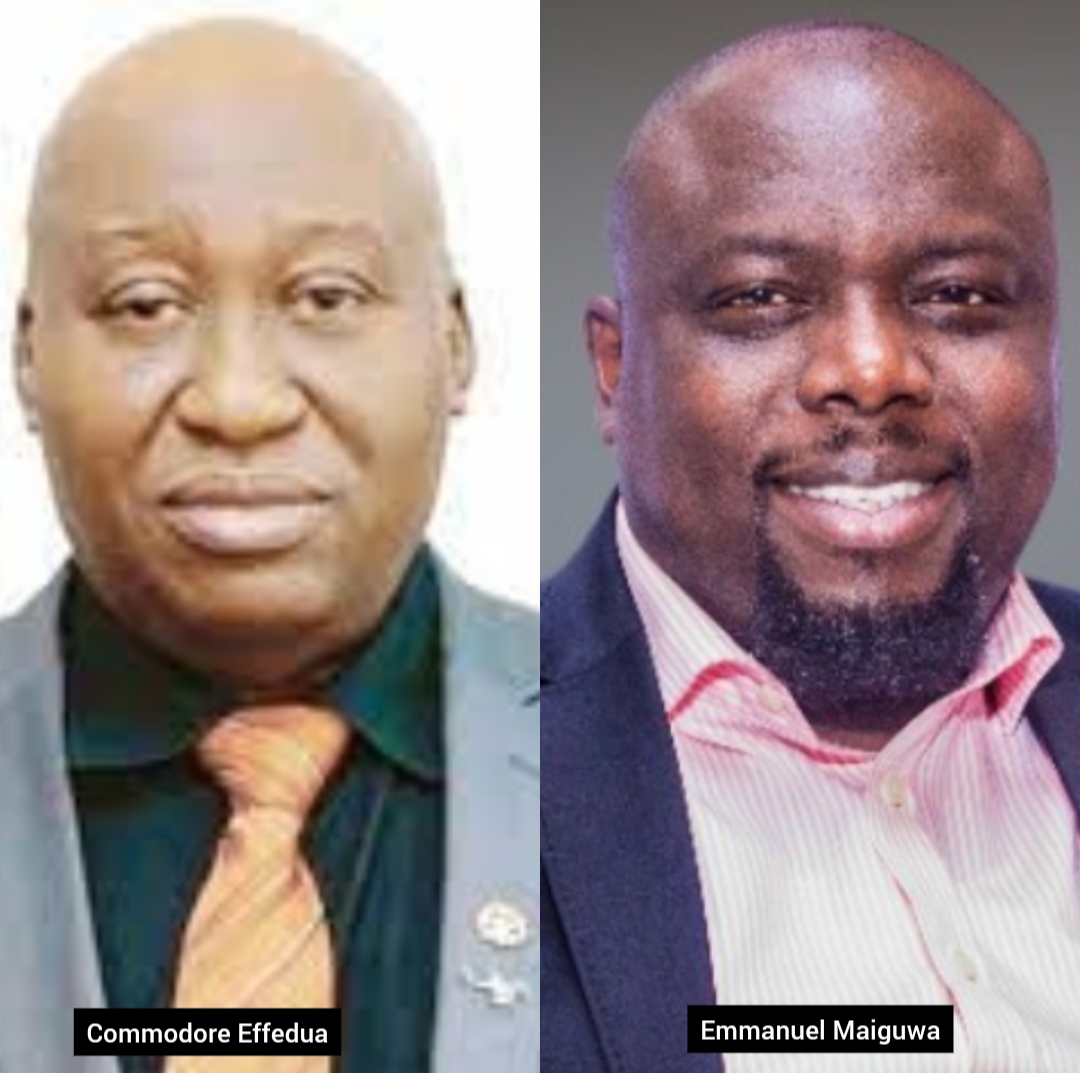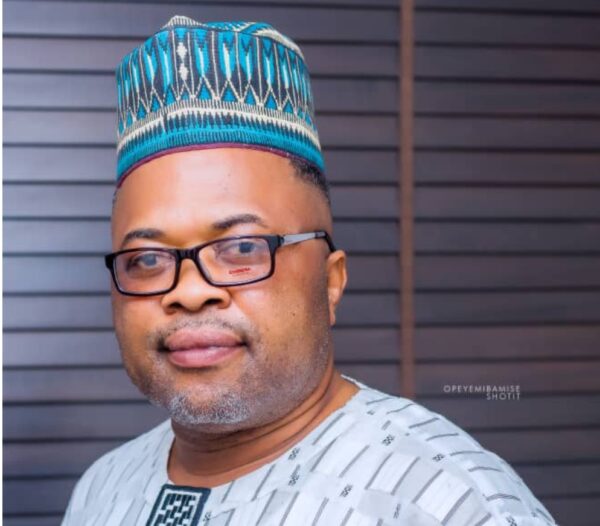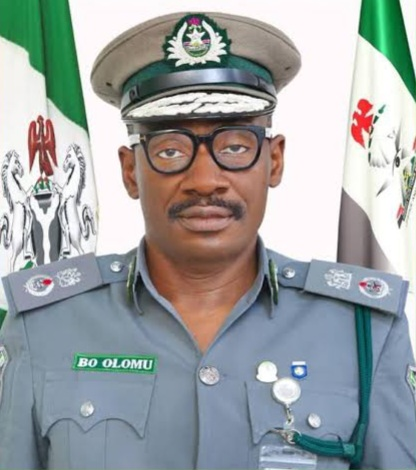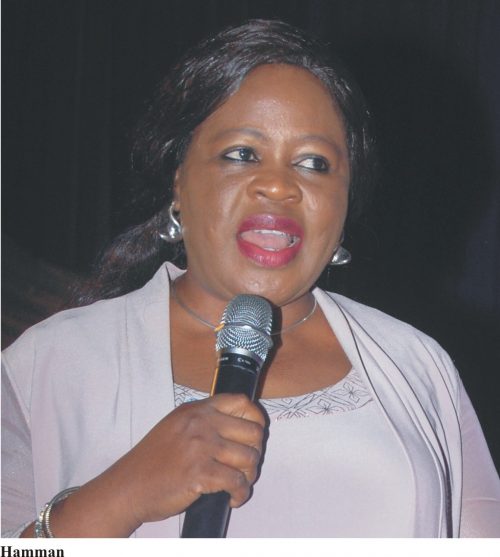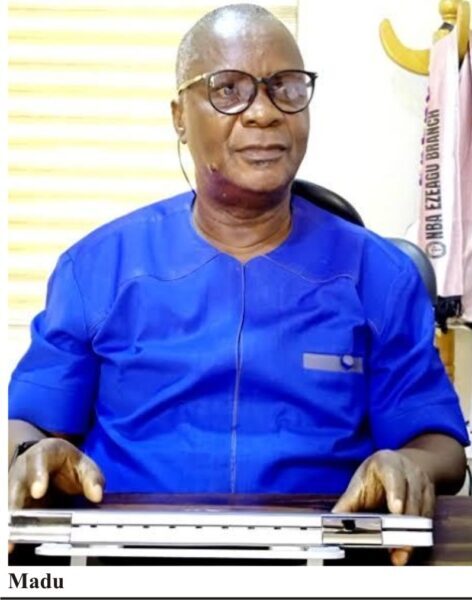Why ICDs Is A Baby of Necessity For Nigeria —-Charles Akhigbe
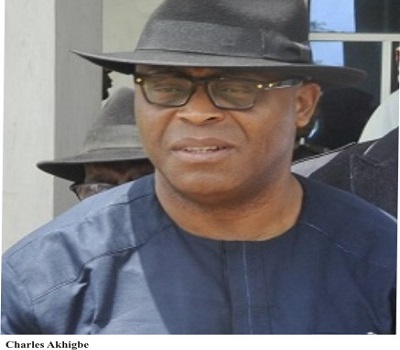 Engr. Charles Akhigbe, Chairman/Managing Director, Atlantic Marine, Edo Inland Container Depot in this exclusive chat with MMS Plus at the commissioning of the Kaduna Inland Container Ports explores so many issues including the benefits of the ongoing ICD project in Edo state and Nigeria at large. While calling on indigenous investors to key into the project, Engr. Charles also advocates for the resuscitation of the short spot rail line (approved in 2015) that is supposed to come from Oshogbo through Akure to Benin as a major means of making the ICD project more effective and also to value to it.
Engr. Charles Akhigbe, Chairman/Managing Director, Atlantic Marine, Edo Inland Container Depot in this exclusive chat with MMS Plus at the commissioning of the Kaduna Inland Container Ports explores so many issues including the benefits of the ongoing ICD project in Edo state and Nigeria at large. While calling on indigenous investors to key into the project, Engr. Charles also advocates for the resuscitation of the short spot rail line (approved in 2015) that is supposed to come from Oshogbo through Akure to Benin as a major means of making the ICD project more effective and also to value to it.
Can you please tell us how far you have gone with the Edo ICD
Atlantic Marine Edo Inland Container Ports is a modern port that has been in construction for the past two or three years thereabout and as you are aware as a maritime journalist, the main purpose is to bring shipping activities to the doorsteps of industrial manufacturers within that zone. We know that there is Warri port and other ports that have existed before but we are also aware that the ways they are operating currently is not the way they should be. Looking at the federal government’s plan to bring inland ports within certain areas, we submitted an unsolicited proposal to the federal government to build an inland container port in Edo State and ‘why?’ because Edo State is a major logistics corridor between Lagos and the South and all the way through Okene, Abuja and Northwards. What happens to all the industries? Again, we aren’t talking about current industries but innovation, new growth, and new opportunities.
If you have a new friend today who has been with you for thirty years, it doesn’t mean that you shouldn’t have a new friend today whom you have known for the past one year. So, when you talk about innovation, we are missing that in a lot of our activities. Wherefore, looking at Edo as a major hub for trade and commerce activities, we thought that we should build something that will simulate the economy in a different way in the state and that is what prompted us to embark on the project with our partners and on the third of May we received a management visit from the Nigeria Shippers Council whom we have been waiting for a long time on this project and the visit is just like what we are having here today in Kaduna ICD. We hope also that in the nearest future, we will receive the minister and that will open our eyes to quite a lot of things that needs to be done. It is our excitement in the state basically to begin to let people become aware of the trade and commercial activities which have been an intrinsic part of Benin Kingdom. If you remember, the Portuguese first came to Benin Kingdom in 1300 before the British came in the 1850 or 1870. We are trying to re-enact that kind of trade activity and put Edo State on the global shipping map.
Can you talk about your challenges and when you are likely to complete the project?
Well, so far, the state governor has appointed me as the chairman of the states implementation committee of the project and when the chief executive officer of the Nigeria Shippers Council and I visited our revered monarch, his royal majesty, the Oba of Benin, we made a determined promise that between one and a half to two years is the maximum, the project will be ready for commissioning by the minister of transport.
Do you have idea of what the cost implication is all about?
You know an ICD has a focus plan, so far, we are still at construction stage. I think we are more than seventy percent (70%) to eighty percent (80%) completed.
At this stage of implementation, we are trying to bring in investors because it is a Public Private Partnership (PPP) project and the investors are showing great deal of interest and I will not be able to say what the final cost will be because we are also bringing in top rate consultants like the Price Waterhouse Cooper (PWC) to come and help us with further infrastructural development and discuss the expression of interest to enable private equity and all the transaction advisors and others but we have gone very far with the regulatory authorities, ICRC and all others and we are back to Shippers’ Council.
The Shippers’ Council has been very good and all their officers are extremely knowledgeable. They have advised us on what to do. We are currently working with a consultant who is an ex-employee of Nigerian Shippers’ Council, who also is very knowledgeable about this kind of project. So for, we have all the right beats and we are rolling very well but we cannot say for now. We know how much we have spent to date but we wouldn’t want that to be a subject of speculation but if you give us the next one and a half year we should be able to come out and give you the amount we have spent on the project. At this stage, I would say, we have spent considerable amount of money, otherwise, we wouldn’t have progressed beyond where we were but we should be able to tell in the next couple of months.
When you talk of investors, are you referring to foreign or indigenous investors?
Foreign investors are welcome. Again, because you have a foreign investor coming it validates many things about your project but we are Nigerians because this is a project local to the community, environment and the state. So we want Nigerians who hitherto would have been keeping their money in the bank to come and invest in this kind of project and become equity partners. Come on board of the company like you can see the Kaduna ICD right now is very enviable, very nice and good for the economy. This is what we should be having across the whole country so that there will be what you call the formal trade and commerce activities rather than the so much informal activities you see.
Again, I read a World Bank report that states that 24% of our trade and commerce activities are crossing the border informally. I think a situation like this doesn’t go well with us as a manufacturers or industrialists or even a new industrialist because we want young people to go into manufacturing to become industrialists and entrepreneurs.
With the ICD, you stay in Kaduna here and order for your goods from abroad and the freight forwarders and shippers put them (your containers) on the train and bring them straight to you while you don’t have to go to Lagos. If you have to go to Lagos, imagine the stress and all the time you have to waste just to clear one container but you can see how beautiful this place looks, how free it is. If your container comes here, you can see how stress free and less time it take you to clear a container compared to Lagos.
Over and above that, what about the new skills that would be generated here? What about the freight forwarders that will open offices? What about the jobs that would be created? What about organizations that you see in Lagos all over Ajao Estate that are doing training workshops, seminars with a view to improving skills and building new skills in the area of shipping, warehousing, logistics, freight forwarding, customs clearing and others?. I am sure all those kind of new skills will enhance this environment and within a very short period of time (maybe within two, three years to five years), this whole environment would be bubbling with commercial activities which is the major idea of ICDs to specific remote locations so that those economies can begin to regenerate itself and grow.
What volume of cargo will the ICD take (accommodate) in Benin?
The Benin ICD itself is currently in construction process. It’s divided into two phases. The first phase is designed to take a maximum of about fifteen thousand (15,000) TEUs while the second phase will accommodate maybe a maximum stretch of twelve thousand (12,000) TEUs/containers. We hope that by the time we are done with phase one probably to stimulate the economy and generate the cash, that will enable us to complete our phase two but we are very confident looking at the fact that we are on the major, (Abidjan, Cotonu) all the way to Northern corridor axis. Edo State is a major logistics hub where I believe more than sixty percent (60%) of exports and imports passes through to the North, East, South, and South -South and in fact, to some South Western states. Therefore, we don’t see any reason for example, shippers around these entire area axis will not be encouraged to use the Benin dry ports once it is commissioned.
You have been talking about the road alone, what about the rail link?
For now, there is no rail link but in our presentation to the Executive Secretary(ES), we showed him what we designed to be a future plan for the rail and when the officials of the Nigerian Shippers Council also came in 2015, we discussed about the future of rail lines and you remember the coastal rail line is coming and we hope that it comes very soon. It will do nothing but enhance commercial activities across all the coastal states. Also remember that some years back there was the approval (maybe in 2015) of the short spot rail line that is supposed to come from Oshogbo through Akure to Benin. So we are hoping that if that project hasn’t been kept inside a cooler, it could be another opportunity to enable Benin City specifically Edo State see a rail line crossing through it. In our development plan, we are looking hopefully in the next five years before a rail line will cross through Benin to bring in more, because that will enhance more ability for containers to come in here faster but for now we are going to work with the relevant agencies to make sure that this cargoes can come in by the trucks.
Is that where you are also talking about having Truck Transit Park (TTP)?
Yes, the Atlantic Marine and Engineering services limited is also promoting TTP because we have submitted a formal application like I told you earlier, that after the visit of the ES, the following week the governor inaugurated an eight (8) man implementation committee which I am chairing on behalf of the state to actualize the ICD and the TTP project.
During the visit of the ES, we already identified the land at Benin bye-pass and we are also aware that there is a land allocated or maybe proposed at Oluku. We are aware that another one will be set up at Aviele, going towards Edo North hopefully. The committee is working assiduously to achieve the mandate or the terms of reference as spelt out by the governor but we are also waiting. The government has written officially to the ES, informing him of the set up of the eight (8) man implementation committee and we believe that as soon as we hear from the ES and his team then we would have a complete stakeholder group so that we can meet. As a state committee, we cannot do anything without the ES and his team and other stakeholders that are involved. Like we said, it is a PPP project and then, of course, there would be wider interest which we all have to take into consideration.
What are the benefits of this ICD?
You know the ICD itself is a baby of necessity for this country because it is not everywhere in Nigeria that is covered by the sea. There are some parts that no container, vessel or ship goes because of one reason or the other. Sometimes, due to insecurity and we have seen some parts collapse. But, if you look at what is going on in the North, all the informal trades and others, you will expect that an ICD will bring much more benefits where every entrepreneur that is involved in import and export will find a space to be organized and then of course, there will be promoters like the Kaduna ICDs where we are now. The Benin ICD which we are promoting will drive a kind of organized environment and what we are hoping is that the benefits this kind of organized environment will bring is quite huge.
Government will see growth in internally generated revenues. The project will also fulfill social functions which are job creation and enhancing human being as well as economic justice and then it will bring about profitability for the business and once you are profitable, you will employ more people then buy more equipment.
Then of course, ordinarily this place was not developed the way it is now. It would have been a fallow-environment wasting away. So there is environmental justice because you have converted this whole area into something that would bring about both social and economic justice. It is definitely an all round sustainable project that compliments federal government’s effort to ensuring that we are doing things that will continue to build the economy, drive economic regeneration and that will continue to give people the opportunity for a sustainable future.
If you look at this place, you can see that as more business comes in, there will be growth in jobs. People wake up in the morning, they come to work, close and go back. The community where the business is taking place will also be taken care of in every aspects of their business consideration and in their supply chain system. There are so many things that will happen as this place is being commissioned today.
Therefore, we are here to learn, see and to watch and hope that with the support of the ES and Federal Ministry of Transport, we will get the Benin ICD going and commissioned.




